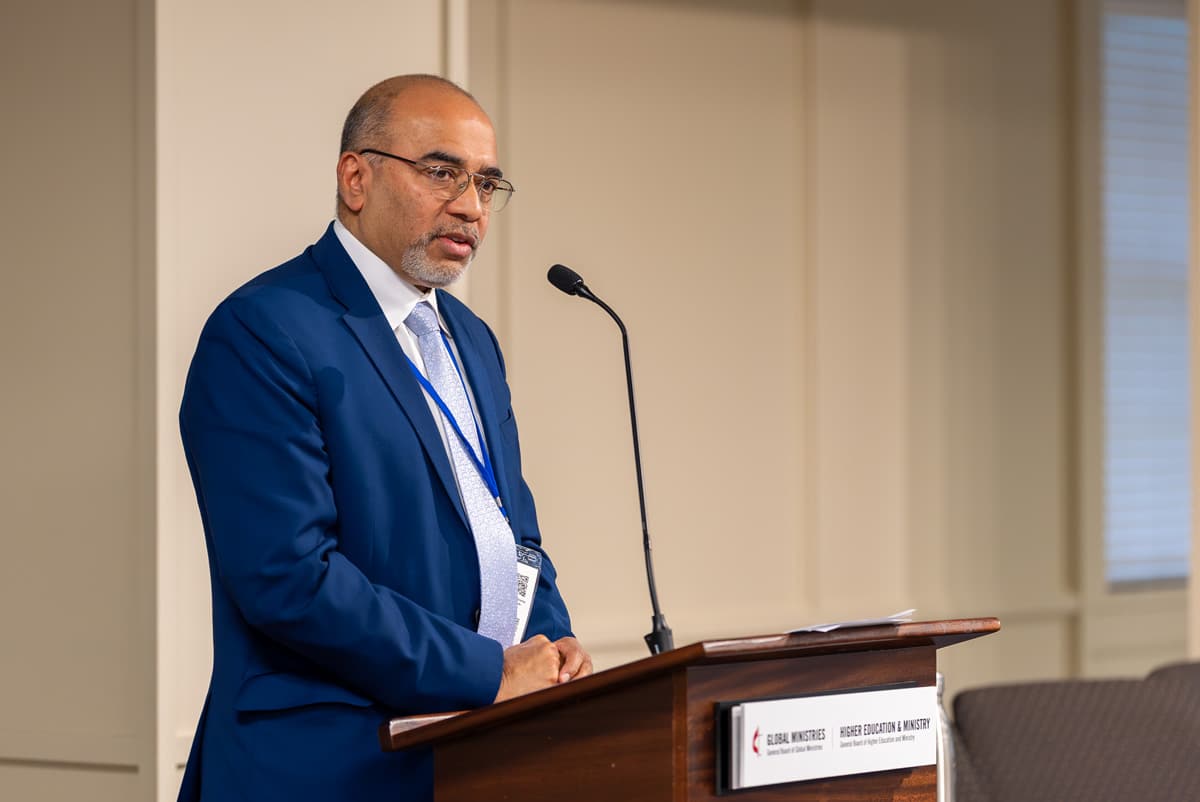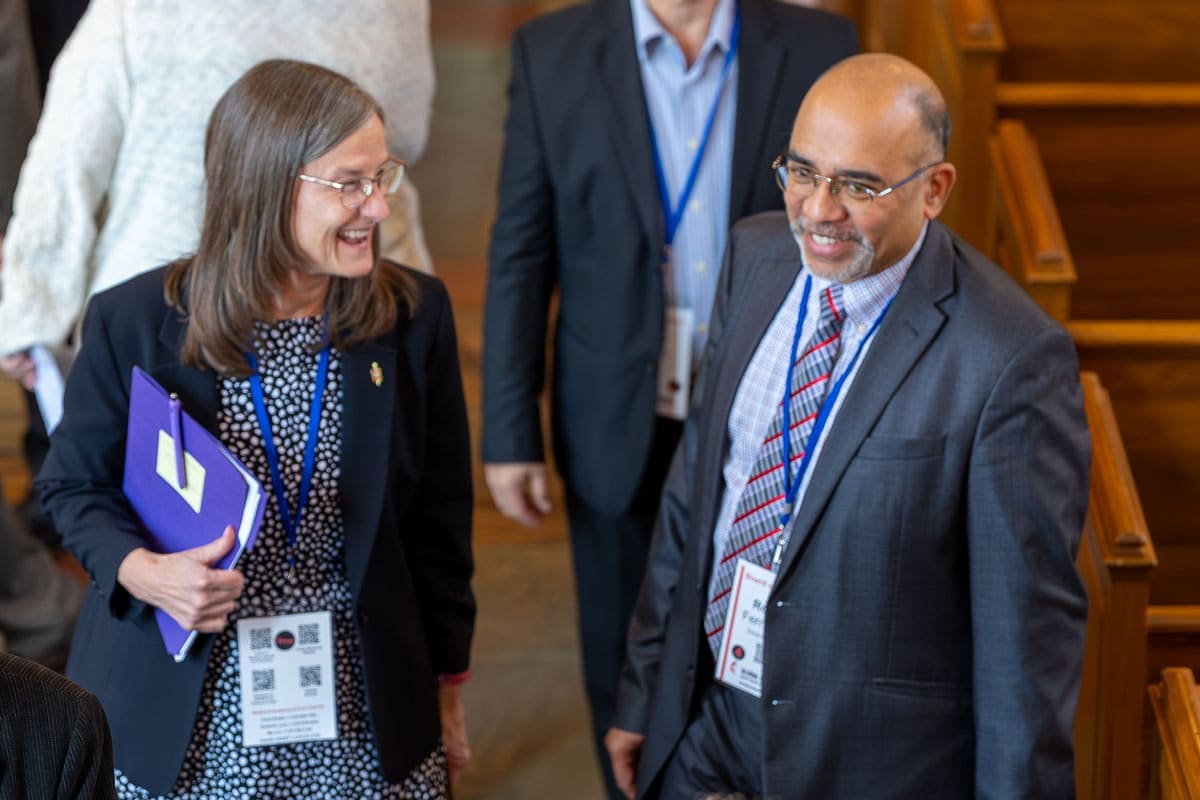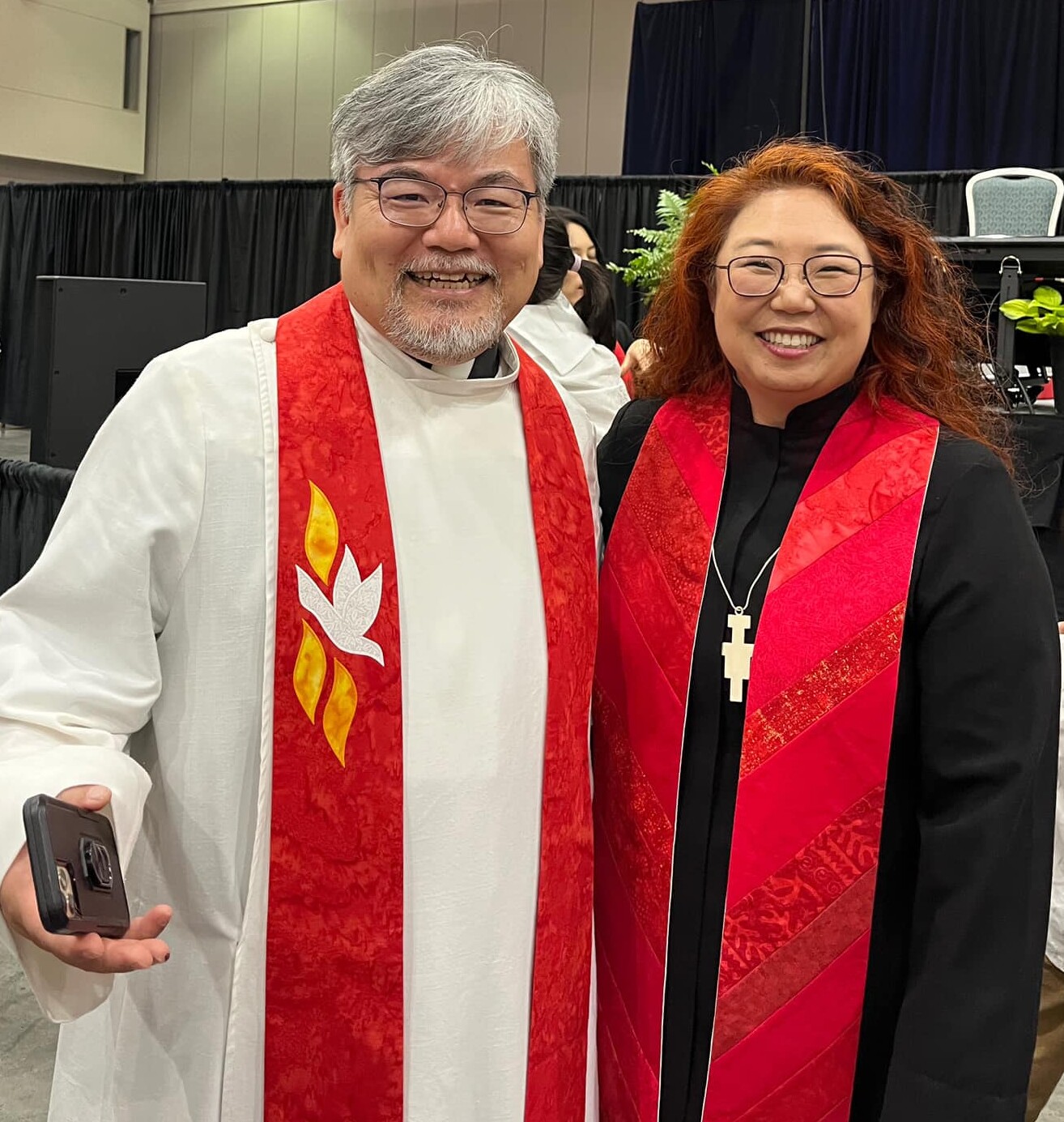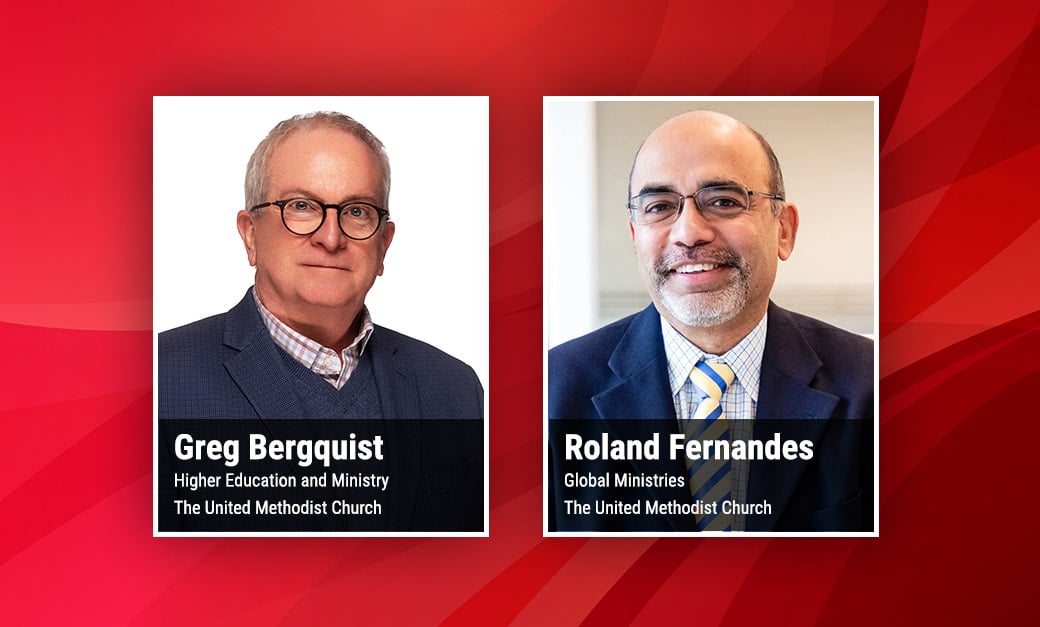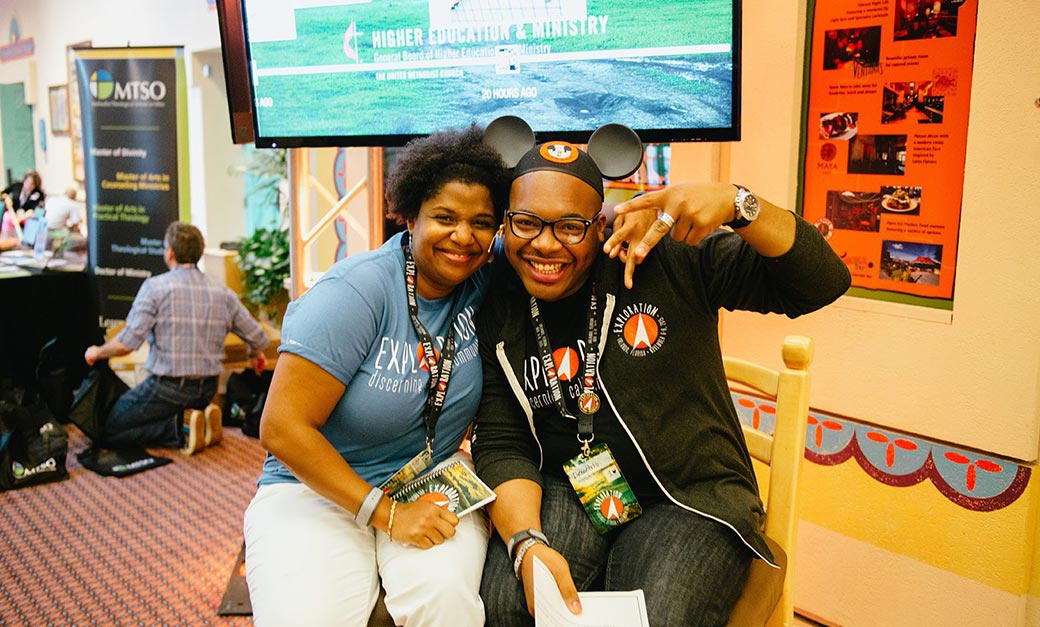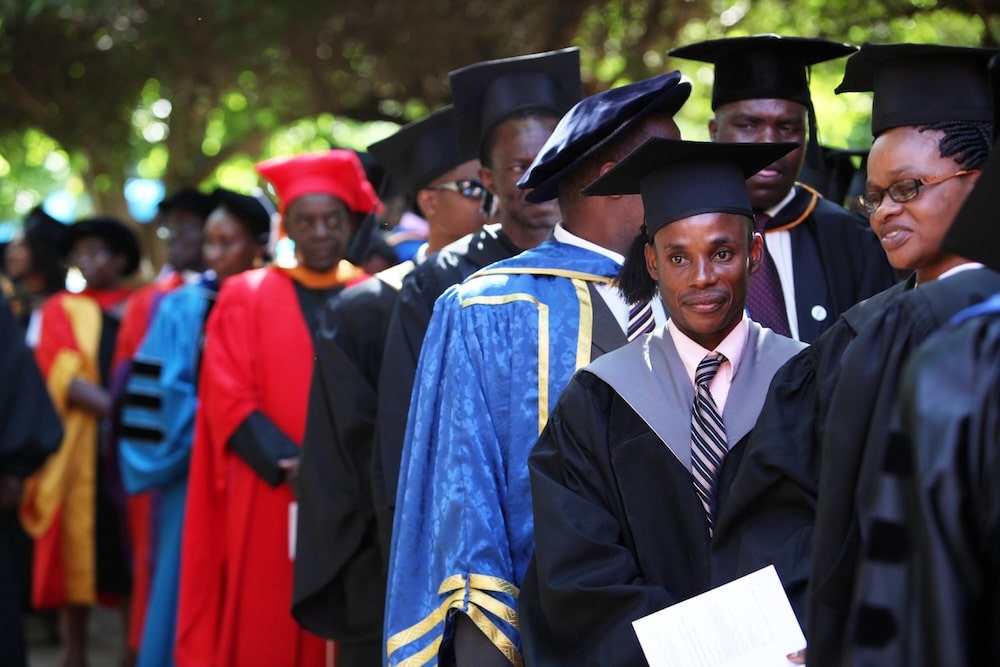Daring to Dream: Inspired by a legendary Methodist missionary, Korean disciple leads Mongolian university into the future
The Office of Clergy Lifelong Learning at the General Board of Higher Education and Ministry (GBHEM) began a partnership with Huree University in 2016. Since this time, both organizations have looked for ways to expand the partnership in providing quality Methodist education. Six U.S.-based local pastors traveled to Huree University in fall 2017 to connect with the Southeast Asia and Mongolia Provisional Central Conference and the faculty and students at Huree University. The goals of the trip included exploring ways to collaborate with Huree University and identifying a plan to help address the educational and ministerial needs of the conference.
Following the trip, expanding the awareness and fund development for Huree has remained a part of the ongoing work of the Office of Clergy Lifelong Learning. The article below provides a deeper look into the university and its leader. Huree University-related articles from GBHEM:
- E-Readers Project Expands to Asia through Partnership with Wesley Theological College and Huree University
- UMC Leaders Grow Connections in Mongolia, Further Shared Vision for Global Leadership
Daring to Dream: Inspired by a legendary Methodist missionary, Korean disciple leads Mongolian university into the future
She’s 17, living in a one-room ger on a windswept Mongolian plain. Her mother, brothers, sisters, and grandparents share the tiny home and struggle to survive on less than $1.25 each day. More than anything she wants to continue her education, but one glance at her family’s skiny horses, sheep, and goats reminds her that college is a far-fetched fantasy. Achieving that dream would take a miracle. Or maybe you.
“Our University is transforming the lives of Mongolian young people from all across the country,” says Dr. Chung Soon Hoon, Ph.D., President of Huree University. Founded in 2002, Huree reflects a long and vibrant tradition of Methodist missionary outreach and now ranks in the top 10 of Mongolia’s nearly 100 universities.
Huree is Mongolia’s only private university with a Christian orientation that focuses primarily on science and technology. Despite the fact that only 10% of students enter Huree as Christians, and formal religious education is prohibited in Mongolia, 80% become Christians before graduating through the Christian witness of faculty and fellow students.
Since childhood, Dr. Chung himself was inspired by the impact American Methodist missionary Henry Appenzeller made in Korea at the end of the 19th century. At the height of his own career as president of a prestigious Korean university, Dr. Chung decided to leave his homeland and launch his own missionary work in Mongolia, assuming the helm of young Huree University.
Just $100 a month allows a student to attend Huree for a full year with a daily meal.
“A dollar goes so far in Mongolia,” notes G. Douglass Lewis, President Emeritus of Wesley Seminary in Washington, D.C. and Chair of the Huree University Advisory Board. Yearly tuition at Huree costs only $1,000, yet more than half of the students cannot afford this amount. Neither can they afford just $1 each day for lunch.
By donating $100 a month, churches and individuals can enable one student to realize the dream of attending Huree for a full year and receiving what is often their only hot meal of the day.
“We are a mission school, driven to nurture leaders who will improve Mongolia’s economy and expand the Christian faith,” says Dr. Chung. “But achieving our vision takes money. Everything from scholarships to hot lunches to future facilities depends on the compassion of Methodist churches around the world. Like most Mongolians, our students come from extremely poor backgrounds in both urban and rural areas. Over half of Huree’s students were raised by single mothers and many students are orphans.”
A curriculum designed to change lives—and a nation.
Mongolia’s myriad challenges might overwhelm most universities. In Huree’s case, the nation’s problems actually defined the school’s core academic focus. Mongolia has a high infant mortality rate. An average income of $125 per month. Birth defects are on the rise. Mineral wealth which made mining the nation’s top industry is not infinitely sustainable. Over one/third of the nation’s three million people live jammed into the capital Ulaanbaatar where wintertime pollution makes visibility extremely difficult. Most homes have no heating systems and use coal stoves to survive long, frigid winters. The brutal climate and landscape make many industries and most agriculture, save nomadic herding, unfeasible. A tiny population hinders production of competitively-priced manufactured goods.
Huree University’s solution? Cultivate experts in an industry well suited to flourish amid this mountain of challenges: Information technology (IT). “Consider how India has grown to provide crucial IT support for the U.S.,” explains Dr. Chung. “Mongolia can provide this same resource to South Korea, one of the world’s most successful economies.” IT is South Korea’s main industry, but it faces a severe shortage of experts due to a declining youth population. In contrast, the young Mongolian population is increasing. “I have already arranged for South Korean companies to use Huree students for virtual online support,” Dr. Chung reports. “Since they graduate with a degree in IT, our students are well positioned to find jobs and can work from anywhere. That means they can stay in Mongolia providing IT support to South Korea and the world, while building their own economy.”
Huree coursework fully reflects this goal—including English and Korean languages, information and communication technologies, computer science, mathematics, physics, chemistry, biology, engineering, bioengineering, civil engineering, and architecture. Huree plans special exchange programs that will allow students to spend a year studying abroad in South Korea, the U.S., Japan, or Germany.
A unique university culture.
Mongolia is one of the world’s newest democracies, patterned closely on the American model. Communist rule ended in the early 1990’s, and one legacy of that still recent past is a lack of nurturing university environments. Huree stands in sharp contrast. “More than 60% of our professors are Korean missionaries with a true passion to teach and to care,” says Dr. Chung. “Although earning just $300 per month, and separated from loved ones in South Korea, their dedication and willingness to sacrifice is amazing. They become like mothers and fathers to our students. A faculty to student ratio of 1 to 20 means class sizes are small. After lectures, teachers often take their class to dinner, play sports together, and participate in Christian clubs. Connecting students with local churches becomes a wonderful, life-changing haven. We’re a university, but also a family.”
“For decades, Mongolian people were discouraged from thinking as individuals with personal dreams and goals,” Dr. Chung continues. “At Huree, we constantly work to help students discover their dreams. I created a hiking club with the motto, ‘Raise Up our Goals.’ Now, out on a mountainside together, I say, ‘Raise up,’ and they shout back, ‘My goal!’ Most have never received any ethical or moral education at home or at school. We fill that vacuum by instilling values and nurturing the whole person. For women students, Huree provides a crucial alternative to early marriage, pregnancy, and divorce. My dream is that one day a Huree graduate will become the first woman President of Mongolia.”
A history of ‘firsts.’
Huree was the first university in Mongolia to:
- Provide scholarships—an idea that had never existed before in the country
- Offer a degree in computer science
- Create a Hot Lunch Program, allowing students with no funds to have the first balanced, nutritious meal of their lives—often their only meal each day
- Allow and welcome students with disabilities
Dreams for the future.
Dr. Chung’s ambitious vision would make Huree the first university in Mongolia to:
- Build a campus with dormitories, laboratories, a library, a gymnasium, and offices for professors. Current Mongolian universities consist of only a few classroom buildings.
- Create the first women’s studies program and build a Women’s Leadership Development Center.
- Establish the first university medical program with a teaching hospital, enabling students to gain practical experience while earning their degree.
- Build a Public Health Care Center.
- Expand to offer liberal arts education.
“We feel deeply responsible for these young people. Each student’s success creates a better life, a better nation, and a better world.” ~Chung Soon Hoon, Ph.D., President, Huree University.
A $200 donation provides a daily hot meal for one student. $1,000 provides a full year of tuition. Learn how you or your church can engage in Huree University’s transformative mission at Huree.development@gmail.com.
Related Posts
United Methodist mission and education agencies form new boards of directors. October 15, 2024 | by Elliott Wright NASHVILLE, Tenn. – The general boards of Higher Education and Ministry and Global Ministries affirmed their partnership in mission and ministry during a joint meeting of their boards of directors in Nashville...
Higher Education and Ministry and Global Ministries boards meet in Nashville for organization, orientation and connection. Bishop Sandra Steiner-Ball with Roland Fernandes. The bishop gave the sermon during opening worship for the joint GBHEM and GBGM meeting taking place October 14 - 17 in Nashville, Tenn. Photo: Adam Bowers...
Rev. MiRhang Baek, Virginia Annual Conference, The United Methodist Church, with spouse Rev. TaeWon Kang. Participating in the Clinical Pastoral Education (CPE) program at the General Board of Higher Education and Ministry’s Center for Integrative Pastoral Practice (CIPP) has profoundly transformed my self-awareness, personal growth and ministry as...
